
Ideas is a long-running scholarly radio documentary series on CBC Radio One, first broadcast in 1965. Since September 2019 it has been hosted by Nahlah Ayed and is broadcast between 8:05 and 9:00 p.m. weekday evenings; one episode each week is repeated on Monday afternoons under the title Ideas in the Afternoon. The CBC Ideas podcast series initiative began in 2005.
George Harry Bowering, is a prolific Canadian novelist, poet, historian, and biographer. He was the first Canadian Parliamentary Poet Laureate.

Thomas King is an American-born Canadian writer and broadcast presenter who most often writes about First Nations.
The Massey Lectures is an annual five-part series of lectures given in Canada by distinguished writers, thinkers, and scholars who explore important ideas and issues of contemporary interest. Created in 1961 in honour of Vincent Massey, a former Governor General of Canada, it is widely regarded as one of the most acclaimed lecture series in the country.
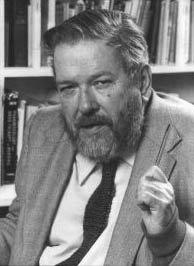
George Parkin Grant was a Canadian philosopher, university professor and social critic. He is known for his Canadian nationalism, a political conservatism that affirms the values of community, equality and justice and his critical, philosophical analysis of the social and political effects of limitless technological progress. As a practising Christian, Grant conceived of time as the moving image of an eternal order illuminated by love.

Lawrence Hill is a Canadian novelist, essayist, and memoirist. He is known for his 2007 novel The Book of Negroes, inspired by the Black Loyalists given freedom and resettled in Nova Scotia by the British after the American Revolutionary War, and his 2001 memoir Black Berry, Sweet Juice: On Being Black and White in Canada. The Book of Negroes was adapted for a TV mini-series produced in 2015. He was selected in 2013 for the Massey Lectures: he drew from his non-fiction book Blood: The Stuff of Life, published that year. His ten books include other non-fiction and fictional works, and some have been translated into other languages and published in numerous other countries.

Neil Geoffrey Turok is a South African physicist. He has held the Higgs Chair of Theoretical Physics at the University of Edinburgh since 2020, and has been director emeritus of the Perimeter Institute for Theoretical Physics since 2019. He specializes in mathematical physics and early-universe physics, including the cosmological constant and a cyclic model for the universe.
Margaret Visser is a Canadian writer and broadcaster who lives in Toronto, Paris, and South West France. Her subject matter is the history, anthropology, and mythology of everyday life.
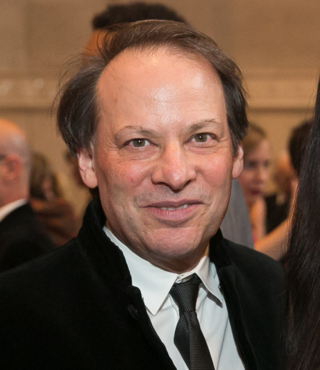
Adam Gopnik is an American writer and essayist. He is best known as a staff writer for The New Yorker, to which he has contributed non-fiction, fiction, memoir, and criticism since 1986.

Street Legal is a Canadian legal drama television series, which aired on CBC Television from 1987 to 1994, followed twenty-five years later by a six-episode season with a substantially different cast. Street Legal was the longest-running one-hour scripted drama in the history of Canadian television, holding the record for twenty years before being surpassed by Heartland's 139th episode on March 29, 2015.

A Short History of Progress is a non-fiction book and lecture series by Ronald Wright about societal collapse. The lectures were delivered as a series of five speeches, each taking place in different cities across Canada as part of the 2004 Massey Lectures which were broadcast on the CBC Radio program, Ideas. The book version was published by House of Anansi Press and released at the same time as the lectures. The book spent more than a year on Canadian best-seller lists, won the Canadian Book Association's Libris Award for Non-Fiction Book of the Year, and was nominated for the British Columbia's National Award for Canadian Non-Fiction. It has since been reprinted in a hardcover format with illustrations and also in Kindle and EPUB digital formats.

Charles William Foran is a Canadian writer in Toronto, Ontario.
Mark Anthony Jarman is a Canadian fiction writer. Jarman's work includes the novel Salvage King, Ya!, the short story collection Knife Party at the Hotel Europa and the travel book Ireland's Eye.
Peter Behrens is a Canadian-American novelist, screenwriter and short story writer. His debut novel, The Law of Dreams, won the 2006 Governor General's Award for English fiction, and was shortlisted for the Rogers Writers' Trust Fiction Prize, the Commonwealth Writers' Prize, the CBA Libris Award for Fiction Book of the Year, and the Amazon.ca First Novel Award.

The 100-Mile Diet: A Year of Local Eating is a non-fiction book written by Canadian writers Alisa Smith and J.B. MacKinnon. In the book, the authors recount their experiences, including motivations and challenges, on restricting their diet, for one year, to include only foods grown within 100 miles of their residence. Beginning in March 2005, with little preparation the urban couple began only purchasing foods with ingredients they knew were all from within 100 miles. Finding little in grocery stores, they relied on farmers' markets and visits to local farms. Staples in their diet included seafood, chicken, root vegetable, berries, and corn. They lacked cooking oils, rice, and sugar. They preserved foods for use in the winter but ended with extra supplies.
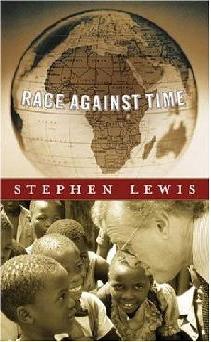
Race Against Time: Searching for Hope in AIDS-Ravaged Africa is a non-fiction book written by Stephen Lewis for the Massey Lectures. Lewis wrote it in early to mid-2005 and House of Anansi Press released it as a corresponding lecture series began in October 2005. Each of the book's chapters were delivered as a different lecture in a different Canadian city, beginning in Vancouver on October 18 and ending in Toronto on October 28. The speeches were aired on CBC Radio One between November 7 and 11. The author and orator, Stephen Lewis, was at that time the United Nations Special Envoy for HIV/AIDS in Africa and former Canadian ambassador to the United Nations. Although he wrote the book and lectures in his role as a concerned Canadian citizen, his criticism of the United Nations (UN), international organizations, and other diplomats, including naming specific people, was called undiplomatic and led several reviewers to speculate whether he would be removed from his UN position.
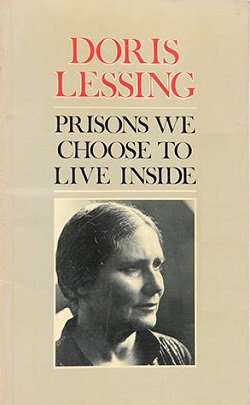
Prisons We Choose to Live Inside is a collection of five essays by the British writer Doris Lessing, which were previously delivered as the 1985 Massey Lectures.

Payback: Debt and the Shadow Side of Wealth is a non-fiction book written by Margaret Atwood, about the nature of debt, for the 2008 Massey Lectures. Each of the book's five chapters was delivered as a one-hour lecture in a different Canadian city, beginning in St. John's, Newfoundland, on October 12 and ending in Toronto on November 1. The lectures were broadcast on CBC Radio One's Ideas November 10–14. The book was published by House of Anansi Press, both in paperback and in a limited edition hardcover.
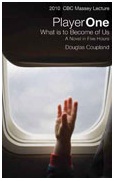
Player One: What Is to Become of Us is a novel written by Douglas Coupland for the 2010 Massey Lectures. Each of the book's five chapters was delivered as a one-hour lecture in a different Canadian city: Vancouver on October 12, Regina on October 14, Charlottetown on October 19, Ottawa on October 25 and ending in Toronto on October 29. The lectures were broadcast on CBC Radio One's Ideas, November 8–12. The book was published by House of Anansi Press.
Tanya Talaga is a Canadian journalist and author of Anishinaabe and Polish descent. She worked as a journalist at the Toronto Star for over twenty years, covering health, education, local issues, and investigations. She is now a regular columnist with the Globe and Mail. Her 2017 book Seven Fallen Feathers: Racism, Death, and Hard Truths in a Northern City was met with acclaim, winning the 2018 RBC Taylor Prize for non-fiction and the 2017 Shaughnessy Cohen Prize for Political Writing. Talaga is the first woman of Anishinaabe descent to be named a CBC Massey Lecturer. She holds honorary doctorates from Lakehead University and from Ryerson University.














